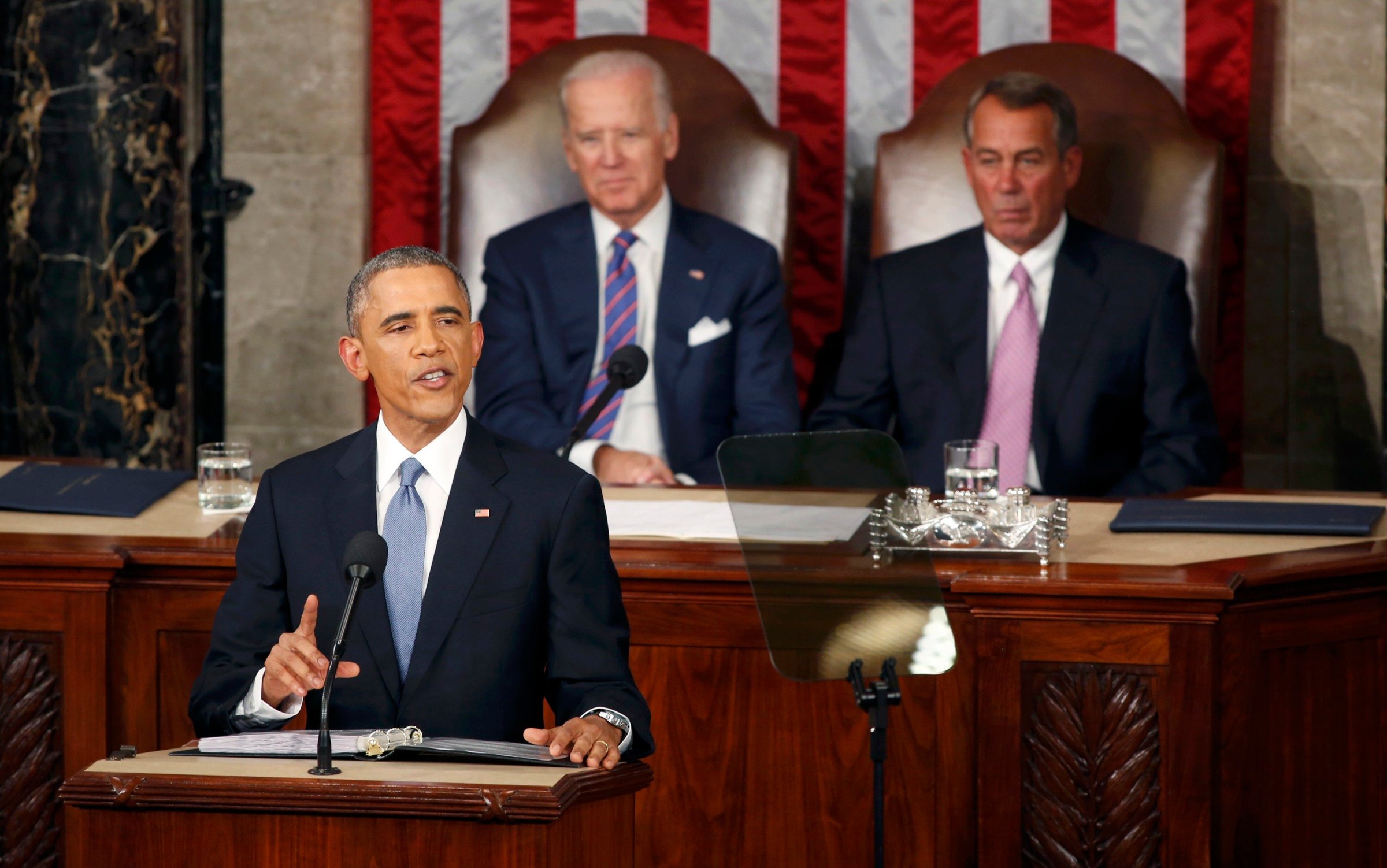
President Obama had a mixed message for Congress on terrorism in his State of the Union address Tuesday: don’t fear terrorists, but do authorize me to use military force against them.
Obama’s not the only one advancing that national security paradox. Leaders around the world face the same problem. Terrorists are scary—that’s their point. So how do you get support to fight them without freaking people out and handing them a win?
“We lead best,” Obama said in his speech, “When we don’t let our fears blind us to the opportunities that this new century presents.” And he implicitly attacked his predecessor, George W. Bush, for failing at the task. “Will we approach the world fearful and reactive, dragged into costly conflicts that strain our military and set back our standing?” Obama asked.
MORE How 7 ideas in the State of the Union would affect you
But Bush has been back in Texas for six years and Gallup reports that 40% of Americans are very or somewhat worried that they or someone in their family will become a victim of terrorism—a slightly higher percentage than when Obama became President in 2009. That’s particularly remarkable when you consider that an American is more likely to be struck by lightening than get hit by a terrorist.
Obama and Bush may not be entirely to blame. The public’s fear of terrorists and its expectations that government will aggressively defend against them are not necessarily the fault of political leaders, says Daniel Byman, co-author of a recent Brookings Institution analysis of the threat posed by foreign fighters returning to the West, “Be Afraid. Be a Little Afraid.”
“It’s very difficult for people to think rationally about low probability events that are high publicity,” Byman says. Furthermore, Byman says, “There are certain things we expect our government to do and one of them is to keep us safe, especially from foreign terrorists—it’s a core government function.”
MORE: Obama made history by using this word during the State of the Union
Which doesn’t make it any less costly to over-react to terrorist threats. Western fear is very specifically what the terrorists are after, as a recruiting tool, as a means of inspiring the troops they have, and as a way of getting opponents to make costly mistakes, Byman says. Some U.S. intelligence officials look at the long-term strategic challenges posed by China, Russia and European economic weakness and think ISIS and the chaos Middle East amounts at best to a diversion and at worst to a trap.
Obama suggested Tuesday that he wants to avoid such a trap. “Instead of getting dragged into another ground war in the Middle East, we are leading a broad coalition, including Arab nations, to degrade and ultimately destroy this terrorist group.” Yet his administration has sought broad powers from Congress to go after ISIS, including the authority to put troops on the ground in Iraq and Syria, where the group is principally operating, and to pursue it in other countries as well.
Republicans have the terrorist threat on their mind, too, of course. In her response from the Senate Armed Services Committee hearing room, Iowa GOP Sen. Joni Ernst said, “This is where we’ll debate strategies to confront terrorism and the threats posed by Al Qaeda, ISIL, and those radicalized by them,” Ernst said. “We know threats like these can’t just be wished away. We’ve been reminded of terrorism’s reach both at home and abroad; most recently in France and Nigeria, but also in places like Canada and Australia. Our hearts go out to all the innocent victims of terrorism and their loved ones. We can only imagine the depth of their grief.”
In the end, one of the most effective tools against terrorists is domestic resilience, especially an acceptance that some level of violence from terrorists, while extremely undesirable, is probably inevitable. “You have to accept that this is a part of modern life,” says Byman. “We need to resource security services, but you don’t want to make it the focus of foreign policy.”
More Must-Reads From TIME
- The 100 Most Influential People of 2024
- Coco Gauff Is Playing for Herself Now
- Scenes From Pro-Palestinian Encampments Across U.S. Universities
- 6 Compliments That Land Every Time
- If You're Dating Right Now , You're Brave: Column
- The AI That Could Heal a Divided Internet
- Fallout Is a Brilliant Model for the Future of Video Game Adaptations
- Want Weekly Recs on What to Watch, Read, and More? Sign Up for Worth Your Time
Contact us at letters@time.com